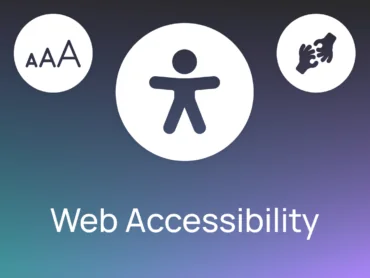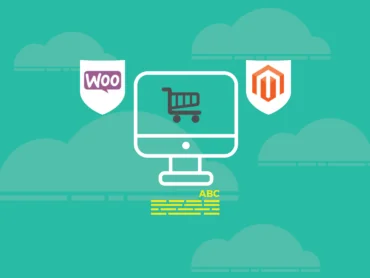Why does Web Accessibility Matter?
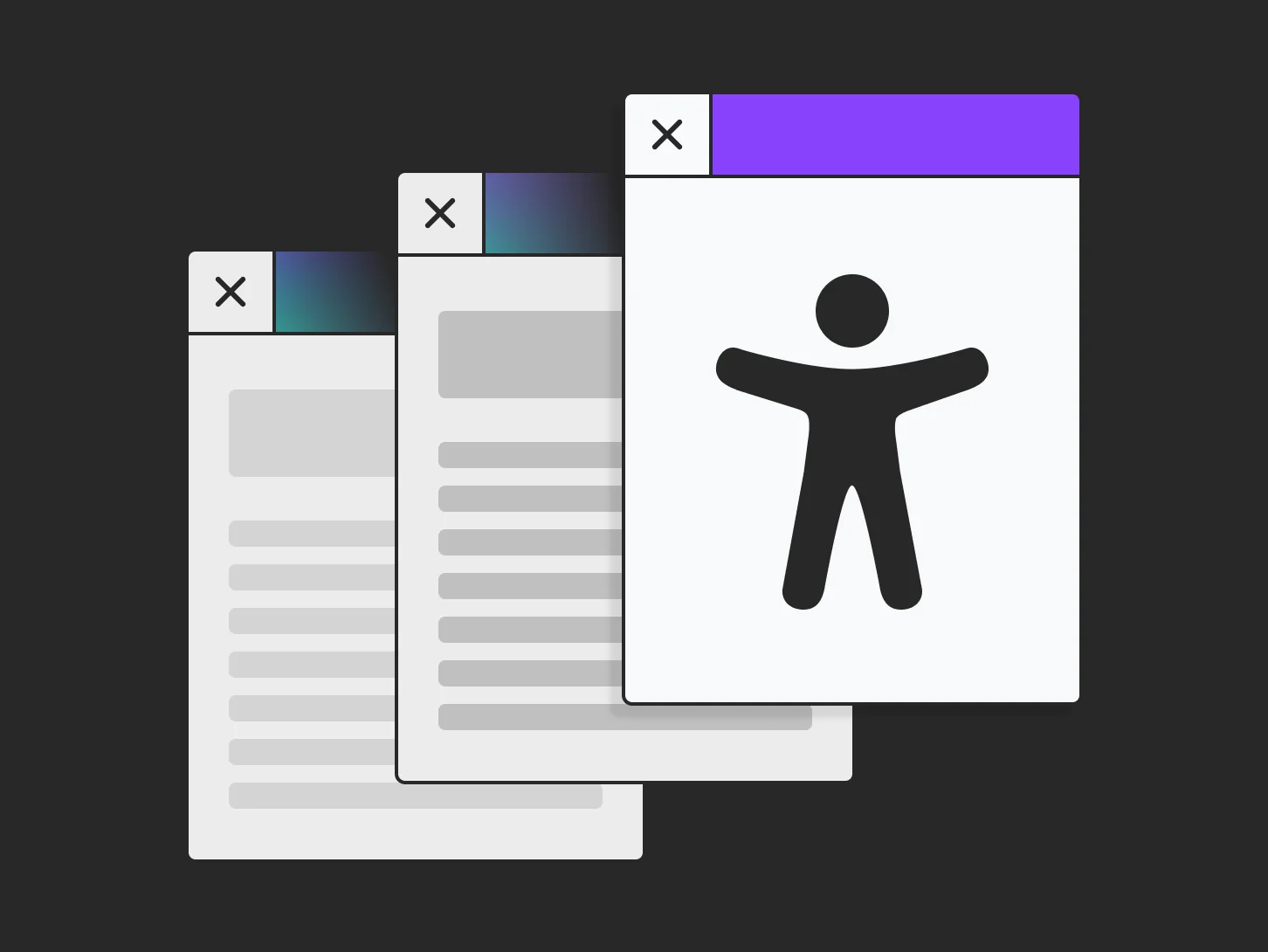
Web accessibility is the practice of ensuring that websites are usable by everyone, including people with disabilities. The Internet is vital for education, work, healthcare, purchasing, and social interaction.
Making sites accessible removes barriers and promotes equality, allowing everyone to access and interact with online content effectively. This fulfills legal and ethical obligations and enhances the user experience for all visitors, reflecting a commitment to inclusivity and diversity.
What is WCAG?
The Web Content Accessibility Guidelines (WCAG), developed by the World Wide Web Consortium (W3C), provide recommendations to make web content more accessible to individuals with disabilities. These guidelines help ensure that websites are perceivable, operable, understandable, and robust for all users, including those with disabilities and those using limited devices.
Adhering to WCAG enhances user experience and mitigates the risk of legal repercussions related to accessibility non-compliance.
Legal Responsibilities
Ensuring web accessibility is a legal requirement in many parts of the world. Below, we explore the legal frameworks in the United States, the European Union, and Canada, highlighting the critical legislation that organizations must comply with to avoid legal repercussions and promote inclusivity.
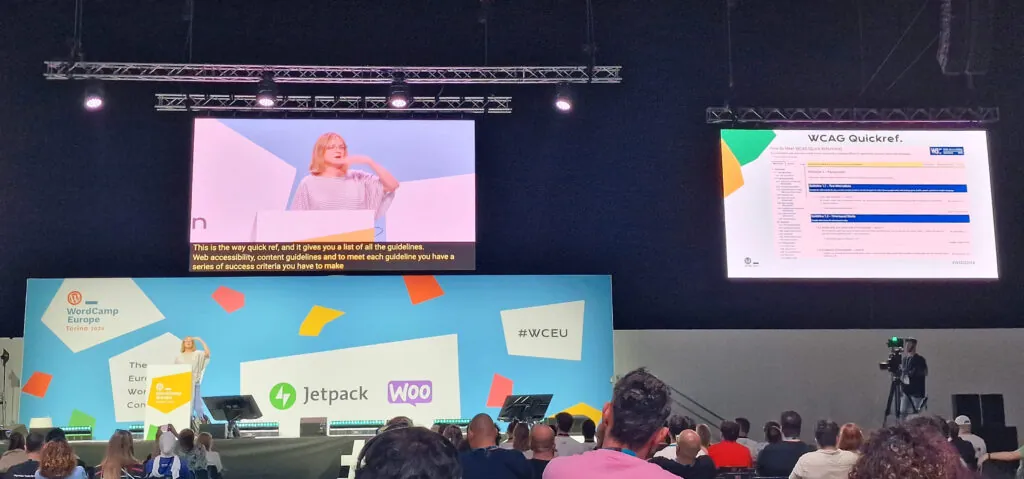
WCAG and Legal Responsibilities are addressed at many industry conferences, such as WordCamp Europe
European Union
The European Union has implemented several directives to ensure web accessibility across member states. The Web Accessibility Directive (2016/2102), introduced in 2016, mandates that public sector websites and mobile applications be accessible to people with disabilities.
Furthermore, the EU Directive 2019/882, set to take effect in 2025, extends these requirements to websites, apps, ebooks, E-Commerce platforms, PDFs, and others to conform to WCAG 2.1 Level AA standards. Every company that provides its services within the European Union should meet these standards. Companies with less than 10 employees and a global turnover of less than €2 million are excluded.
United States
The Americans with Disabilities Act (ADA), established in 1990 and subsequently updated, requires that public accommodations, including websites, be accessible to individuals with disabilities. Additionally, Section 508 of the Rehabilitation Act, updated in 2017, mandates that all electronic and information technology developed, procured, maintained, or used by the federal government must be accessible to people with disabilities. Section 508 adopts seventeen WCAG 2.0 success criteria. Compliance with these laws is a legal obligation and a step towards creating an inclusive digital environment for all users.
Most Digital ADA lawsuits target the e-commerce sector, accounting for 84% of all lawsuits. This highlights online retailers’ critical importance in ensuring their websites are accessible. However, it’s not just the e-commerce industry that needs to be vigilant. Education has become the third most targeted sector, overtaking travel, hospitality, healthcare, and entertainment. This trend indicates that schools, universities, and other educational institutions must prioritize web accessibility to avoid legal repercussions and to provide equitable access to all students, including those with disabilities.
Canada
In Canada, the Accessible Canada Act (ACA), enacted in 2019, aims to make Canada barrier-free for people with disabilities by 2040. This legislation applies to federally regulated sectors, including banking, telecommunications, and transportation, requiring these industries to develop and implement accessibility requirements of WCAG 2.0.
The ACA reflects Canada’s dedication to ensuring that individuals with disabilities have equal opportunities to participate fully in all aspects of society, including access to digital services and information.
Ethical Responsibilities
Beyond legal obligations, ensuring web accessibility is fundamentally an ethical responsibility for organizations. It is essential to remove barriers that could exclude some people from accessing the digital world.
It involves appropriately designing and developing digital solutions like websites and web apps. Accessibility promotes inclusivity, allowing people with diverse abilities to participate fully in the digital world.
Accessible design often leads to a better overall user experience, benefiting everyone, not only people with disabilities. Features like keyboard navigation and proper color use, initially designed to aid individuals with disabilities, can improve usability for all users, including those in situations where they temporarily need such features, such as in noisy environments or multitasking.
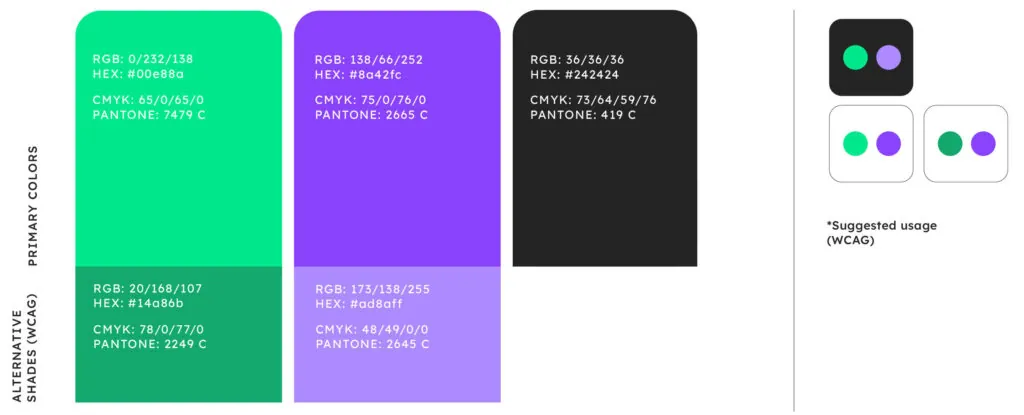
A designer at ambiscale designed the website by thinking about the proper color contrast, complying with WCAG 2.2
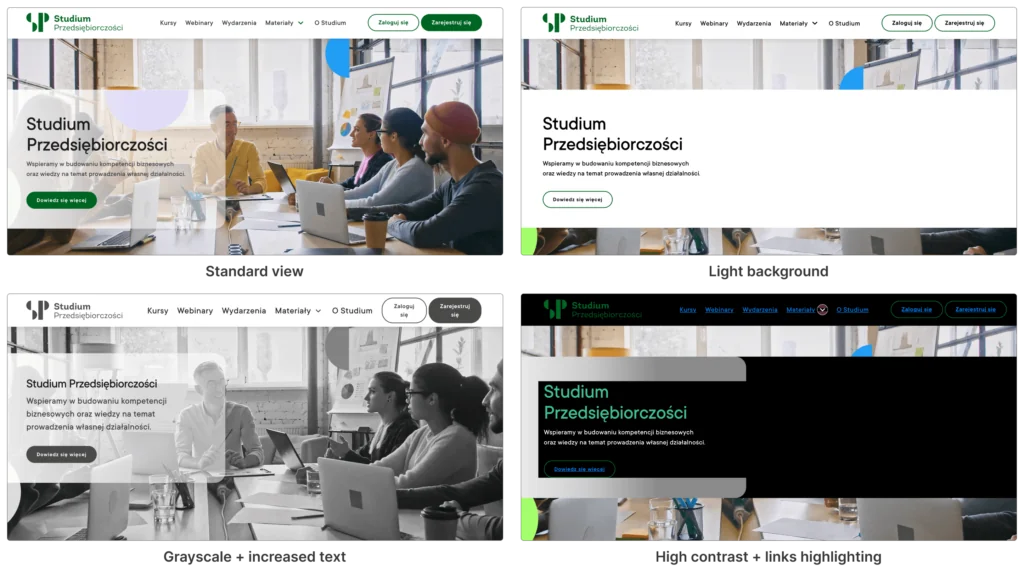
Another possibility to customize the colors on the website is to add the option to set the displayed colors yourself
Make a website great for every individual
Between 15 and 25% of the U.S. population live with some form of disability. Similarly, in the European Union, 27% of the population over the age of 16 has some form of disability. According to Eurostat estimates, that equates to 101 million people or one in four adults in the EU. In Canada, 8 million individuals aged 15 and older live with disabilities that affect their daily activities.
Given these numbers, organizations should consider the cost benefits of implementing digital accessibility. By ensuring that websites are accessible to everyone, businesses can tap into this substantial market segment.
Making a website accessible is not just a matter of legal compliance or ethical responsibility; it is a business strategy that opens up opportunities for growth and customer loyalty. After all, an accessible website is an excellent website for everyone.
Importance of Accessibility for E-Commerce
Individuals with disabilities shop online twice as often as the general population. A recent survey revealed that 24% of people with disabilities make digital purchases weekly, and 3% shop online daily. Regarding their online shopping preferences, accessibility is the top priority, followed by product variety and price. Interestingly, 36% of respondents indicated they would choose a website with better accessibility over one with the lowest prices.
Businesses prioritizing accessibility can attract and retain customers who value an inclusive online shopping experience. By ensuring that their websites are easy to navigate and use for everyone, e-commerce companies not only comply with legal standards but also enhance their competitiveness and customer satisfaction. Ultimately, accessibility is a crucial driver for success in the digital marketplace.
How to make my website accessible?
What conditions must be met to comply with WCAG? What do you need to do to make the site friendly to every user?
For example:
- Ensure the user can resize text up to 200% without losing content or functionality;
- Use correct and valid HTML code to avoid validation errors and ensure clean coding practices;
- Avoid flashing content that can trigger seizures or other issues, and ensure dynamic elements are accessible;
- Pay attention to the contrast between text and graphical elements to enhance readability;
- Properly use tables and lists to organize information clearly and ensure your website is secure and stable.
Navigating these and many more WCAG requirements can be challenging for business owners. The easiest way to ensure compliance is to trust specialists with experience conducting accessibility audits and implementing web accessibility solutions. Contact us to discuss how we can help make your website accessible to all users.

